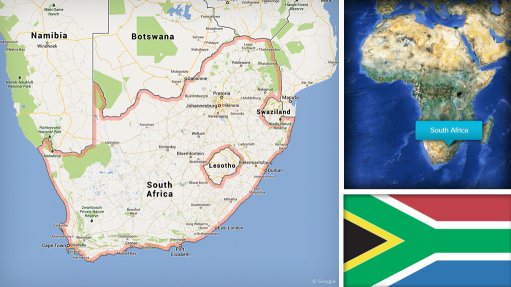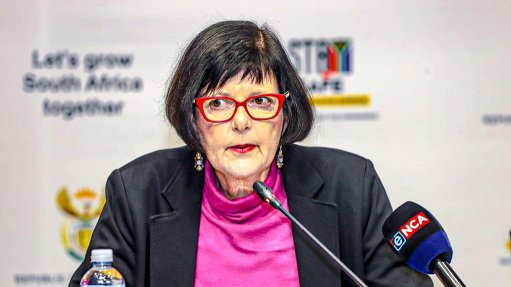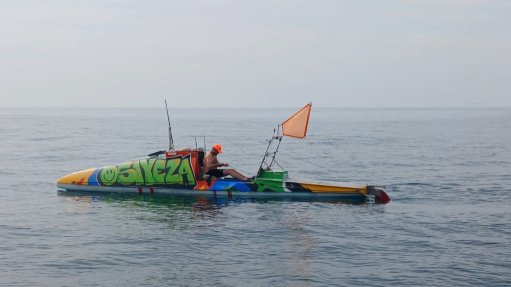UFS calls for mountain biodiversity research support
The University of the Free State (UFS) has called for facilitation and support for mountain biodiversity research.
UFS Afromontane research director Dr Ralph Clark made this plea during the Southern African Mountain Conference 2022, which was held in the Maloti-Drakensberg in mid-March.
Elevated mountain regions, such as the Eastern Great Escarpment, which contains the Maloti-Drakensberg, have a profound effect on weather systems.
Clark suggested that mountain biodiversity research could be supported through the establishment of a Southern African Development Community and United Nations (UN) Educational, Scientific and Cultural Organization instrument.
Cark said the UN already had similar instruments in place, which was discussed during the conference.
Alternatively, he suggested other government initiatives, such as easier permitting processes, to accelerate research in the country.
“The location of Southern African mountains is key to understanding why we should be scrutinising and analysing them and their biodiversity. At a regional level, Southern African mountains are still among the most poorly documented in the world in terms of biodiversity knowledge. But what the research is yielding is fascinating,” he explained.
He added that there may be another world-beater in these grassy montane regions, one that potentially rivalled South Africa’s famous Cape Floristic Region, one of the six floral kingdoms recognised worldwide for its extraordinary and often unique plant diversity.
“Preliminary figures are starting to show that the grasslands of the Eastern Escarpment could actually rival the Cape Floristic Region in terms of absolute numbers of species and proportionate richness,” noted Clark.
He highlighted that there was still a lack of understanding of what biodiversity many of South Africa’s mountain ranges had.
A speaker during the conference, Global Mountain Biodiversity Assessment executive director Dr Davnah Urbach, unpacked why it was necessary to have an understanding of the biodiversity of mountains.
“Mountain biodiversity supports a number of valuable goods and services that mountains deliver to society. Perhaps the most crucial is for water for drinking and for irrigation, but it also offers montane grasslands for pasture, timber and cultural and spiritual activities.”
Urbach pointed out that mountains also served to store carbon, regulate air quality, host flora and fauna and served as a source of medicinal plants. “If we do not protect the flora and fauna of mountains, the soils become fragile and release stored carbon, and create huge risks of dangerous soil loss or mudslides.
“A mudslide such as those we hear of in South American countries, that sweep away towns and kill many people, generates headlines, but perhaps the constant slow loss of soil into rivers and streams, which then silt up and flood, or cause silting in downstream dams, is more of a worry.”
A clear understanding of mountain ecosystems, the species that formed part of them, what roles they filled, and how they worked, was essential, Clark averred, for sensible and informed land management decisions.
“To what extent do exotic timber plantations threaten soil resilience and pose unnatural fire hazards? How much grazing pressure can montane grasslands bear? What species are under especial threat from invasive aliens, and what domino effect could that have? Should we impose limits or conditions on recreational uses of mountain environments?
“We need to understand what to protect, what to prioritise and how to protect what can still be protected,” said Urbach.
OBSTACLES
In South Africa’s case, each province has its own legislation controlling the collection, import and export of plants and animals.
Clarke noted that this legislation was often complex to navigate for collections staff and researchers. For some provinces, the ordinances predate the political transition of 1994 and are applicable to the former homelands.
For example, the Eastern Cape currently operates under three outdated ordinances (Transkei, Ciskei and Cape Province), and how these are interpreted is unclear.
The North West province has a similar challenge with its ordinances coming from Bophuthatswana, the Transvaal and the Cape Province.
Some provinces have drafted new biodiversity legislation in the form of an Act but these are not yet in force, particularly in North West and KwaZulu-Natal.
Of course, the UFS considers it vital that countries and provinces have regulations in place to protect biodiversity – especially from commercial exploitation, whether small-scale or large.
“But it creates an arduous and challenging situation for researchers who need to collect samples, often of species they have not seen before, and which may well be part of a group that is protected, and take them – sometimes across provincial or national boundaries – to labs where they can figure out what they are and how they fit into the ecosystem,” Clarke explained.
It could take as long as nine months to get the necessary permits for mountain-based research.
Additionally, Clarke noted that virtually all Southern African mountains are trans-provincial or trans-national systems, making permit processes that much more laborious to achieve, and often resulting in some mountain sections being much better understood than other parts of the same mountain but under another territorial domain.
Clark and Urbach have appealed to government to gather with parastatals, academic institutions and other research organisation to discuss how the processes around mountain biodiversity research can be made easier, quicker and less costly.
“Our mountain biodiversity is under immediate threat from land-use changes, encroachment by human settlements, pollution and the broad changes triggered by the climate crisis.
“Understanding what we’re at risk of losing and how it supports us is urgent; making the process quicker and easier should have public and political support,” the experts concluded.
Comments
Press Office
Announcements
What's On
Subscribe to improve your user experience...
Option 1 (equivalent of R125 a month):
Receive a weekly copy of Creamer Media's Engineering News & Mining Weekly magazine
(print copy for those in South Africa and e-magazine for those outside of South Africa)
Receive daily email newsletters
Access to full search results
Access archive of magazine back copies
Access to Projects in Progress
Access to ONE Research Report of your choice in PDF format
Option 2 (equivalent of R375 a month):
All benefits from Option 1
PLUS
Access to Creamer Media's Research Channel Africa for ALL Research Reports, in PDF format, on various industrial and mining sectors
including Electricity; Water; Energy Transition; Hydrogen; Roads, Rail and Ports; Coal; Gold; Platinum; Battery Metals; etc.
Already a subscriber?
Forgotten your password?
Receive weekly copy of Creamer Media's Engineering News & Mining Weekly magazine (print copy for those in South Africa and e-magazine for those outside of South Africa)
➕
Recieve daily email newsletters
➕
Access to full search results
➕
Access archive of magazine back copies
➕
Access to Projects in Progress
➕
Access to ONE Research Report of your choice in PDF format
RESEARCH CHANNEL AFRICA
R4500 (equivalent of R375 a month)
SUBSCRIBEAll benefits from Option 1
➕
Access to Creamer Media's Research Channel Africa for ALL Research Reports on various industrial and mining sectors, in PDF format, including on:
Electricity
➕
Water
➕
Energy Transition
➕
Hydrogen
➕
Roads, Rail and Ports
➕
Coal
➕
Gold
➕
Platinum
➕
Battery Metals
➕
etc.
Receive all benefits from Option 1 or Option 2 delivered to numerous people at your company
➕
Multiple User names and Passwords for simultaneous log-ins
➕
Intranet integration access to all in your organisation

















